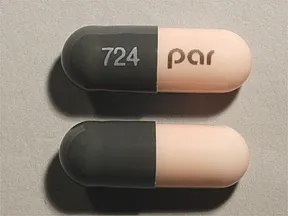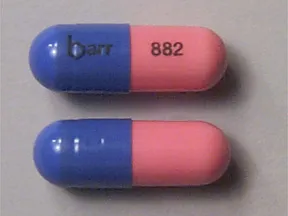Uses
This medication is used by people with sickle cell anemia to reduce the number of painful crises caused by the disease and to reduce the need for blood transfusions. Some brands are also used to treat certain types of cancer (such as chronic myelogenous leukemia, squamous cell carcinomas).
How to use Hydroxyurea
Read the Medication Guide if available from your pharmacist before you start taking hydroxyurea and each time you get a refill. If you have any questions, ask your doctor or pharmacist.
Take this medication by mouth with or without food as directed by your doctor, usually once daily. The dosage is based on your weight, medical condition, lab results, and response to treatment. Your treatment may be stopped for a short time if your blood counts are too low. Keep all medical and lab appointments.
Do not increase your dose or use this drug more often or for longer than prescribed. Your condition will not improve any faster, and your risk of serious side effects will increase.
If you are using the capsules, swallow the them whole. Do not crush, chew, or open the capsules.
If you are using the tablets, swallow your dose with a glass of water. Only split a tablet if it has a score line and your doctor has instructed you to do so. If you have trouble swallowing, you may dissolve the whole or split tablet in a small amount of water in a teaspoon and swallow it right away.
Wash hands before and after handling the medication or its container. You and/or your caregiver should wear disposable gloves when handling this medication or its container. If powder from the tablet or capsule spills, wipe it up right away with a wet paper towel and throw away in a closed container such as a plastic bag. Clean the spill area right away with soap and water. Make sure not to breathe the powder from the tablets/capsules.
Since this drug can be absorbed through the skin and lungs, women who are pregnant or who may become pregnant should not handle this medication or breathe the dust from the tablets/capsules.
Tell your doctor if your condition does not get better or if it gets worse.
Side Effects
See also Warning Section.
Nausea, vomiting, loss of appetite, mouth sores, diarrhea, or constipation may occur. If any of these effects last or get worse, tell your doctor or pharmacist promptly.
People using this medication may have serious side effects. However, you have been prescribed this drug because your doctor has judged that the benefit to you is greater than the risk of side effects. Careful monitoring by your doctor may decrease your risk.
Tell your doctor right away if you have any serious side effects, including: skin problems (such as ulcers, darkened/blackened/reddened skin), mental/mood changes (such as confusion, hallucinations), seizures, shortness of breath, yellowing eyes/skin, dark/bloody urine, signs of kidney problems (such as change in the amount of urine).
Get medical help right away if you have any very serious side effects, including: chest pain.
A very serious allergic reaction to this drug is rare. However, get medical help right away if you notice any symptoms of a serious allergic reaction, including: rash, itching/swelling (especially of the face/tongue/throat), severe dizziness, trouble breathing.
This is not a complete list of possible side effects. If you notice other effects not listed above, contact your doctor or pharmacist.
In the US -
Call your doctor for medical advice about side effects. You may report side effects to FDA at 1-800-FDA-1088 or at www.fda.gov/medwatch.
In Canada - Call your doctor for medical advice about side effects. You may report side effects to Health Canada at 1-866-234-2345.
Warnings
This medication decreases bone marrow function, an effect that may lead to a low number of blood cells such as red cells, white cells, and platelets. This effect can cause anemia, decrease your body's ability to fight an infection, or cause easy bruising/bleeding. Your doctor will monitor you closely while you are using this medication. Tell your doctor right away if you develop any of the following symptoms: signs of infection (such as sore throat that doesn't go away, cough, fever, chills), easy bruising/bleeding, pale skin, unusual tiredness.
Hydroxyurea may cause other cancers (such as secondary leukemia, skin cancer). Protect your skin from the sun. Avoid prolonged sun exposure, tanning booths, and sunlamps. Use sunscreen and wear protective clothing when outdoors. Tell your doctor right away if you notice any symptoms of cancer, such as swollen glands, sudden weight loss, night sweats, or unusual skin growths/moles.
Precautions
See also Warning section.
Before taking hydroxyurea, tell your doctor or pharmacist if you are allergic to it; or if you have any other allergies. This product may contain inactive ingredients, which can cause allergic reactions or other problems. Talk to your pharmacist for more details.
Before using this medication, tell your doctor or pharmacist your medical history, especially of: other blood/bone marrow problems (such as low red/white blood cells and platelets), kidney disease, liver disease, HIV infection, high uric acid level in the blood, radiation treatment.
Hydroxyurea can make you more likely to get infections or may make current infections worse. Stay away from anyone who has an infection that may easily spread (such as chickenpox, COVID-19, measles, flu). Talk to your doctor if you have been exposed to an infection or for more details.
Tell your health care professional that you are using hydroxyurea before having any immunizations/vaccinations. Avoid contact with people who have recently received live vaccines (such as flu vaccine inhaled through the nose).
To lower the chance of getting cut, bruised, or injured, use caution with sharp objects like razors and nail cutters, and avoid activities such as contact sports.
Before having surgery, tell your doctor or dentist about all the products you use (including prescription drugs, nonprescription drugs, and herbal products).
Older adults may be more sensitive to the side effects of this drug.
It is unknown if this medication affects sperm. If you plan to father a child, discuss the risks and benefits of this medication with your doctor.
Tell your doctor if you are pregnant or plan to become pregnant. You should not become pregnant while using hydroxyurea. Hydroxyurea may harm an unborn baby. Women using this medication should ask about reliable forms of birth control during treatment and for 6 months after the last dose. Men using this medication should ask about reliable forms of birth control during treatment and for 1 year after the last dose. If you or your partner becomes pregnant, talk to your doctor right away about the risks and benefits of this medication.
Hydroxyurea passes into breast milk and may have undesirable effects on a nursing infant. Breastfeeding is not recommended while using this medication. Consult your doctor before breastfeeding.
Interactions
Drug interactions may change how your medications work or increase your risk for serious side effects. This document does not contain all possible drug interactions. Keep a list of all the products you use (including prescription/nonprescription drugs and herbal products) and share it with your doctor and pharmacist. Do not start, stop, or change the dosage of any medicines without your doctor's approval.
Some products that may interact with this drug include: didanosine, stavudine.
This medication may interfere with certain lab tests (such as certain blood sugar tests), possibly causing false test results. Make sure lab personnel and all your doctors know you use this drug.
Overdose
If someone has overdosed and has serious symptoms such as passing out or trouble breathing, call 911. Otherwise, call a poison control center right away. US residents can call 1-800-222-1222. Canada residents can call 1-844-764-7669. Symptoms of overdose include: swelling/scaling of hands and feet.
Do not share this medication with others.
Lab and/or medical tests (such as complete blood count, kidney/liver function) must be done before you start taking this medication and while you are taking it. Keep all medical and lab appointments.
Your doctor may direct you to also take folic acid while you are taking hydroxyurea due to the risk of anemia. Ask your doctor for details.
If you miss a dose, take it as soon as you remember. If it is near the time of the next dose, skip the missed dose. Take your next dose at the regular time. Do not double the dose to catch up.
Store at room temperature away from light and moisture. Do not store in the bathroom. Keep all medications away from children and pets.
Do not flush medications down the toilet or pour them into a drain unless instructed to do so. Properly discard this product when it is expired or no longer needed. Consult your pharmacist or local waste disposal company.
Images

hydroxyurea 500 mg capsule
Color: pink,dark greenShape: oblongImprint: 724 parThis medicine is a pink dark green, oblong, capsule imprinted with "724" and "par".

hydroxyurea 500 mg capsule
Color: green,light pinkShape: oblongImprint: LP 164 LP 164This medicine is a pink dark green, oblong, capsule imprinted with "724" and "par".

hydroxyurea 500 mg capsule
Color: pink,purpleShape: oblongImprint: barr 882This medicine is a pink dark green, oblong, capsule imprinted with "724" and "par".
Are you currently using Hydroxyurea?
This survey is being conducted by the WebMD marketing sciences department.
Selected from data included with permission and copyrighted by First Databank, Inc. This copyrighted material has been downloaded from a licensed data provider and is not for distribution, except as may be authorized by the applicable terms of use.
CONDITIONS OF USE: The information in this database is intended to supplement, not substitute for, the expertise and judgment of healthcare professionals. The information is not intended to cover all possible uses, directions, precautions, drug interactions or adverse effects, nor should it be construed to indicate that use of a particular drug is safe, appropriate or effective for you or anyone else. A healthcare professional should be consulted before taking any drug, changing any diet or commencing or discontinuing any course of treatment.